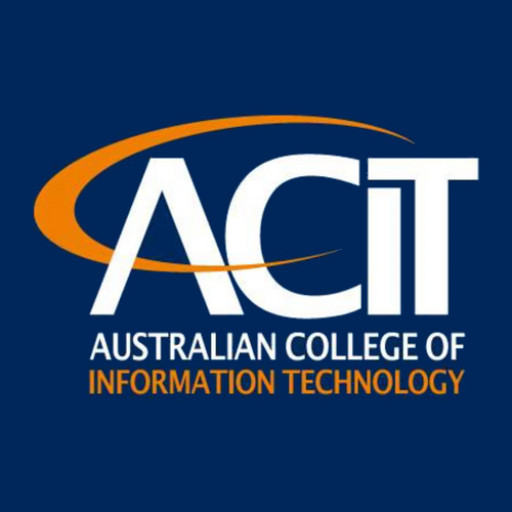Electronics, Telecommunications, and Automation Technology program at Milcom Institute offers a comprehensive curriculum designed to prepare students for dynamic careers in the rapidly evolving fields of telecommunications, electronic systems, and automation. This program integrates theoretical knowledge with practical skills, enabling graduates to design, implement, and maintain complex communication networks, electronic devices, and automated systems across various industries. Students will gain expertise in digital and analog communication techniques, signal processing, microelectronics, control systems, and automation technologies, equipping them to meet the demands of modern technological development. The coursework emphasizes hands-on training through laboratory experiments, projects, and cooperative partnerships with industry leaders, fostering real-world problem-solving capabilities. Graduates of this program will be well-positioned for careers in telecommunications companies, electronic manufacturing, automation engineering, and research institutions. The program also lays a strong foundation for further academic pursuits in electronics and communications, encouraging continuous innovation and professional growth. Faculty members are experienced professionals and academics committed to delivering high-quality education tailored to the needs of the telecommunications sector. The institute provides state-of-the-art laboratories and technical resources to support student learning and project development. By completing this program, students will acquire the technical competencies, analytical skills, and industry awareness necessary to excel in the telecommunications and electronic systems industries. They will be prepared to address challenges related to network infrastructure, signal integrity, automation processes, and emerging communication technologies, making them valuable contributors to technological advancement and innovation.
The Telecommunications Technology degree program at the Milcom Institute offers a comprehensive curriculum designed to prepare students for the rapidly evolving field of telecommunications. Throughout this program, students will gain a solid foundation in the principles of communication systems, including analog and digital transmission, network architecture, and wireless technologies. The coursework encompasses a wide range of topics, such as signal processing, fiber optics, satellite communications, radio frequency engineering, and data networking, equipping graduates with the technical skills needed to design, implement, and manage modern telecommunication networks.
Students will explore applied subjects like network security, telecommunication policy, and emerging technologies such as 5G and Internet of Things (IoT), ensuring they are up-to-date with industry trends. The program emphasizes practical experience through laboratory work, project-based assignments, and internships with leading telecommunications companies, enabling students to apply theoretical knowledge in real-world scenarios.
In addition to technical expertise, the curriculum fosters critical thinking, problem-solving, and communication skills essential for leadership roles within the telecommunications industry. The program also offers opportunities for specialization in areas such as wireless communications, network infrastructure, or optical systems, allowing students to tailor their education according to their career interests. Graduates of the Telecommunications Technology program are well-prepared for careers in network development, systems analysis, technical consulting, or research and development in the telecommunications sector. They will leave with the skills necessary to contribute to the design, deployment, and maintenance of next-generation communication systems, supporting efficient connectivity in a digitally connected world.
Program Requirements for Telecommunications Technology at Milcom Institute include a comprehensive curriculum designed to equip students with fundamental and advanced knowledge in the field. Applicants must possess a high school diploma or equivalent, with a strong background in mathematics, physics, and information technology. Prior completion of courses in algebra, calculus, and computer science is highly recommended to ensure preparedness for the program's technical coursework. English language proficiency is also required, demonstrated through standardized tests such as TOEFL or IELTS, to facilitate effective learning and communication within the program. The admission process may include an entrance examination or interview to assess applicants' aptitude in technical subjects and motivation for studying telecommunications technology. Prospective students are encouraged to submit academic transcripts, letters of recommendation, and a personal statement outlining their interest in telecommunications and career goals. The program mandates the completion of core courses covering topics such as digital communication systems, network architecture, signal processing, wireless communication, and telecommunications policy. Practical experience is emphasized through laboratory work, internships, and project-based assignments to develop hands-on skills aligned with industry standards. Students are expected to adhere to the academic integrity policies of Milcom Institute and maintain the required attendance and performance levels throughout the duration of the program. Successful graduates will be equipped with the knowledge to pursue careers in telecommunications engineering, network management, and related fields, contributing to advancements in communication infrastructure and services. Continuous assessment through exams, coursework, and project presentations ensures that students meet the academic standards required for graduation. The program is designed to be completed within four years for undergraduate students and offers opportunities for postgraduate specialization in emerging areas such as 5G technology, IoT, and cybersecurity within telecommunications.
The financing of the Telecommunications Technology program at Milcom Institute is structured to facilitate accessible higher education while maintaining high academic standards. Tuition fees are calculated annually and vary depending on the student's enrollment status and selected courses. The institute offers several financial support options, including government scholarships, which are awarded based on academic performance and other merit-based criteria. Additionally, Milcom Institute provides institutional scholarships to outstanding students, encouraging academic excellence and research engagement within the field of telecommunications.
Students can also explore external funding sources such as private scholarships and international grants aimed at supporting students pursuing degrees in technology and engineering disciplines. The institute has collaborations with industry partners who sometimes sponsor students for internships and project work, which may include financial stipends or allowances that partially offset educational expenses.
Milcom Institute offers installment plans allowing students to pay their tuition fees over multiple periods, easing financial pressure and enabling more students to enroll. Furthermore, the institute occasionally provides tuition waivers for exceptional candidates or those demonstrating financial need. Loan programs are available through partner financial institutions, designed to provide low-interest or deferred repayment options, thus making higher education in telecommunications technology more affordable for a broader range of applicants.
In summary, the financing options for the Telecommunications Technology program at Milcom Institute encompass a comprehensive suite of scholarships, grants, installment plans, and loan agreements, aimed at making quality education accessible to talented students. The institute is committed to ensuring that financial barriers do not prevent promising individuals from pursuing their careers in telecommunications.
The Telecommunications Technology program offered by the Milcom Institute is a comprehensive undergraduate degree designed to prepare students for careers in the rapidly evolving field of telecommunications. The program focuses on providing students with a solid foundation in the core principles of telecommunications, including analog and digital communication systems, network infrastructure, signal processing, and wireless communications. Students will also gain practical skills in designing, implementing, and managing communication systems, which are essential in today's interconnected world.
Throughout the course of study, students are exposed to various emerging technologies such as 5G networks, Internet of Things (IoT), satellite communications, and cybersecurity measures relevant to telecommunications. The curriculum combines theoretical knowledge with practical application, which includes laboratory work, internships, and project-based learning. This approach ensures that graduates are well-equipped to meet industry standards and adapt to rapid technological changes.
The program also emphasizes the development of analytical and problem-solving skills, preparing students to tackle complex technical challenges in telecommunications environments. Additionally, students have opportunities to participate in research projects or join industry collaborations, providing real-world experience and networking opportunities.
Graduates of the Telecommunications Technology program at Milcom Institute are suited for roles such as network engineers, telecommunications analysts, systems integrators, and technical consultants. They can find employment across diverse sectors including telecommunications companies, government agencies, and private enterprises involved in digital infrastructure development.
The institute maintains strong ties with industry partners and regularly updates its curriculum to align with the latest technological advancements and industry needs. This ensures that students are learning relevant skills that meet current market demands. Moreover, the program's faculty comprises experienced professionals and researchers who bring their knowledge and expertise into the classroom, enhancing the educational experience.
In conclusion, the Telecommunications Technology program at Milcom Institute offers a robust educational pathway for aspiring professionals interested in telecommunications. It combines theoretical learning, practical training, and industry engagement, all aimed at producing competent graduates capable of contributing to the ongoing development of global communication networks.






